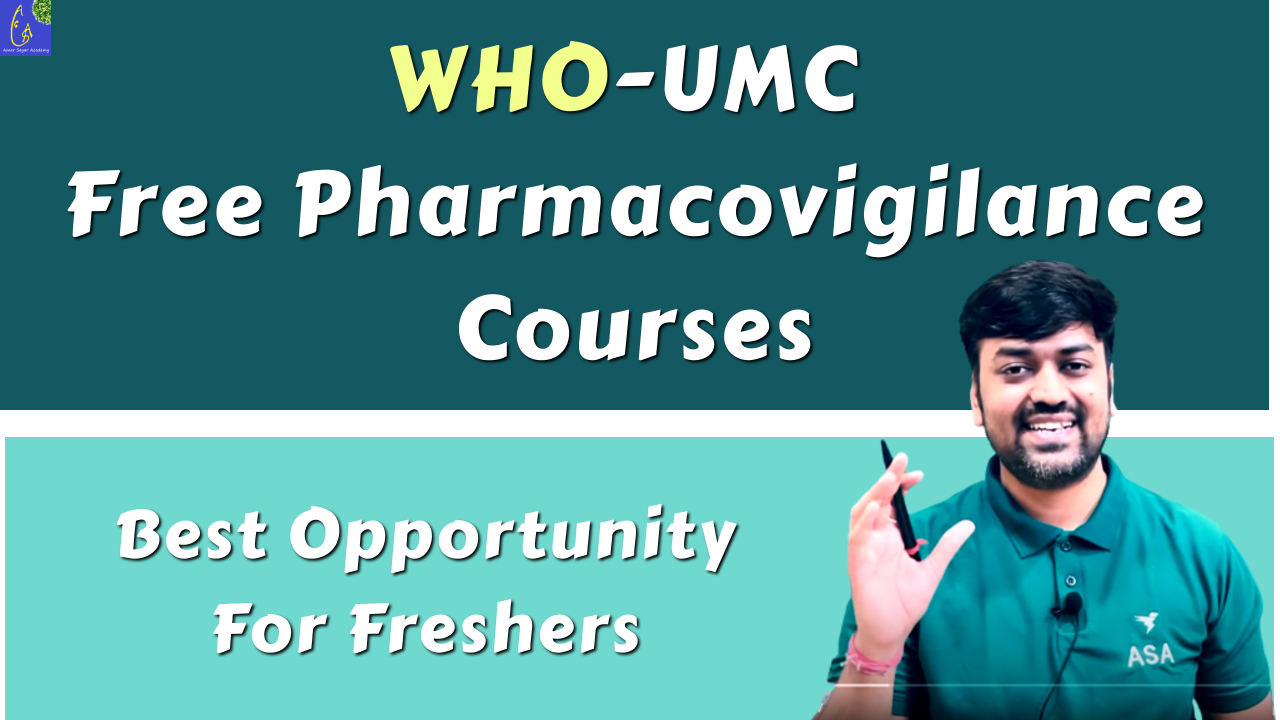Exploring Pharmacovigilance: A Guide to Free Online Courses Offered by WHO UMC
Introduction:
In the realm of healthcare, pharmacovigilance plays a pivotal role in ensuring the safety and efficacy of medicines. It involves the monitoring, detection, assessment, and prevention of adverse effects or any other drug-related problems. With the increasing importance of pharmacovigilance in safeguarding public health, access to quality education in this field is essential. Fortunately, the World Health Organization (WHO) Collaborating Centre for International Drug Monitoring, known as UMC (Uppsala Monitoring Centre), offers a range of free online courses to empower individuals with the knowledge and skills necessary to contribute effectively to pharmacovigilance efforts worldwide.
Understanding Pharmacovigilance:
The foundational course offered by WHO UMC provides a comprehensive overview of pharmacovigilance principles, processes, and systems. Participants delve into topics such as adverse drug reactions (ADRs), signal detection, risk management, and regulatory requirements. Through interactive modules and case studies, learners gain insight into the importance of pharmacovigilance in promoting patient safety and public health.
Introduction to VigiFlow:
VigiFlow is a web-based tool developed by WHO UMC for the management and analysis of individual case safety reports (ICSRs) in pharmacovigilance. This course familiarizes participants with the functionalities of VigiFlow, including data entry, coding, and reporting. By mastering VigiFlow, pharmacovigilance professionals can streamline their workflow and enhance the efficiency of adverse event reporting and analysis.
Basics of Signal Detection:
Signal detection is a critical component of pharmacovigilance aimed at identifying potential safety concerns associated with medicines. In this course, participants learn the fundamentals of signal detection methodologies, such as disproportionality analysis, Bayesian data mining, and cumulative sum (CUSUM) analysis. Practical exercises enable learners to apply these techniques to real-world pharmacovigilance data, thereby strengthening their ability to detect emerging safety signals effectively.
Vaccine Safety Basics:
Vaccines play a vital role in disease prevention and public health. This course focuses on vaccine safety surveillance and pharmacovigilance strategies specific to vaccines. Participants explore key concepts such as vaccine adverse events, immunization safety monitoring, and the role of national immunization programs in ensuring vaccine safety. By understanding the unique challenges and considerations associated with vaccine pharmacovigilance, learners are better equipped to contribute to global immunization efforts.
Medication Errors and Pharmacovigilance:
Medication errors represent a significant threat to patient safety and are a focus area within pharmacovigilance. This course examines the various types of medication errors, their contributing factors, and strategies for prevention. Participants learn how pharmacovigilance systems can contribute to the detection, reporting, and mitigation of medication errors, thereby minimizing their impact on patient outcomes.
Conclusion:
The free online courses offered by WHO UMC provide valuable educational resources for individuals interested in pharmacovigilance or seeking to enhance their knowledge and skills in this field. By empowering learners with comprehensive training and practical tools, these courses contribute to the advancement of pharmacovigilance practice worldwide. Whether you are a healthcare professional, researcher, regulator, or student, exploring these courses can deepen your understanding of pharmacovigilance and enable you to make meaningful contributions to medication safety and public health initiatives.





